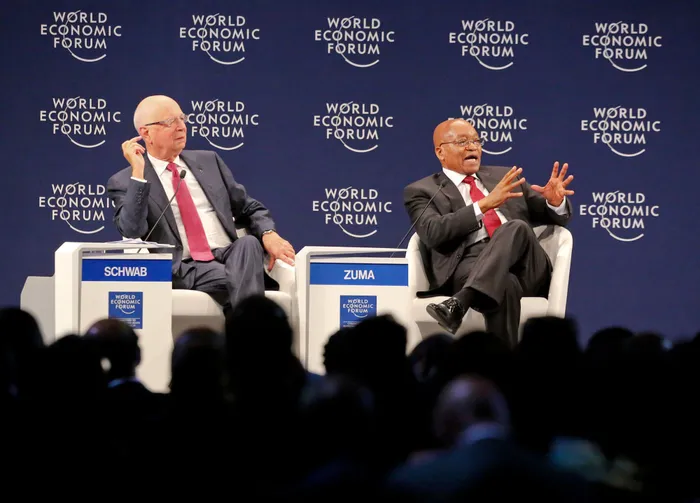Zuma focused on inclusive economy, hearing youth

President Jacob Zuma President Jacob Zuma
There will only be inclusive economic growth if radical action is taken to break down monopolies and balance the economy, says President Jacob Zuma.
Zuma unpackaged his thinking around radical economic transformation and inclusive growth in a wide-ranging exclusive interview with Independent Media at the 27th World Economic Forum (WEF) on Africa in Durban
yesterday.
Zuma said there was nothing sinister about radical economic transformation because if achieved, it would lead to an inclusive economy.
“As South Africans we are inhibited by our history. Our economy was racially structured to benefit a few in terms of infrastructure, human settlements and financial institutions.
“We implemented progressive policies such as Black Economic Empowerment and Affirmative Action because we were thoughtful about the situation.
“We did not want to say, 'let’s take from one and give to the other'. We wanted to look at how we can increase the size of the cake so that everyone would benefit,” said Zuma.
He added, though, that as progressive as that thinking was, the resources to grow the economy were still very scarce, and this was not happening at an acceptable rate.
“We find that the process is taking too long. People are starving. They have no land and other serious material conditions are delaying the process. So as government we have to ask ourselves, 'what must we do?' ”
Zuma said that those holding monopolies were “gobbling up everything” and concentrating it among a few companies, which was not in keeping with what government was trying to do.
“At some point, we had to look at how we restructure our economy. How do we look at radically breaking down monopolies, restructuring the economy and sharing the economic prosperity with everyone, not just a select few. That is what radical economic transformation essentially is,” said Zuma.
He said a key driver to achieve government’s economic goals was the empowerment of the youth, but institutional racism had created a backlog in the education sector, which hampered this.
“When we speak about empowerment, we are speaking about education. Here, again, we are inhibited by our history. There was not enough tertiary institutions for the youth.
“In some provinces, there was not even a single tertiary institution. Because the system was not designed to cater for everyone.
“We also at some point made a mistake, we closed down colleges that empowered young people in a different way because we had a very different way of what we perceived education to be.”
Alluding to a question put to him in an earlier session at the forum, Zuma said the volume of young people who qualified from universities but had no space in the economy often kept him awake at night.
“As government, it sometimes seems as if we are not doing enough, but we have done a lot to reverse the backlog. There is now a plan in place.
“We have made education an apex priority and we will continue to spend a lot of money on it. This shows that we are serious about empowering the youth,” said Zuma.
Earlier in the day, Zuma said Africa’s youth were impatient on change and had been clear in calling for leaders to address exclusion, poverty and unemployment.
“For us to move forward, we need that energy, we need that imagination that young people bring,” said Zuma.
The 2017 World Economic Forum on Africa is taking place in Durban. The meeting convenes regional and global leaders from business, government and civil society to explore solutions to create economic opportunities.